|
On the face of it, the spat between Emmanuel Macron and Jair Bolsonaro over the Amazon rainforest fires was a simple stand-off. An environmentalist French president clashed with an anti-globalist Brazilian president brandishing a shield of national sovereignty. But in Brazil, the politics around the environment are complicated. Anthony Pereira explains how Bolsonaro faces mounting domestic political pressure, including from his own allies, to dial down his anti-environmental rhetoric. Meanwhile, Jayalaxshmi Mistry stresses that for many Indigenous groups in the Amazon, their entire way of life is predicated on using fire sustainably.
The reasons people make bad choices about what they eat are highly complex. Diets are affected by culture, tradition, and nutritional knowledge, among other things. Economic factors like income and the cost of food are also important – especially for poorer people with tight budgets. Derek Headey and Harold Alderman set out how financial and other monetary constraints keep poorer countries stuck with unhealthy food choices.
|
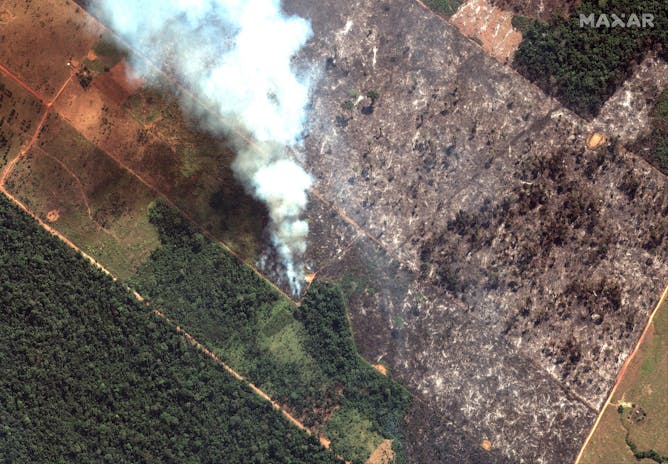
Fire burning in the upper Amazon River basin near Porto Velho on August 15.
Satelitte Image ©2019 Maxar Technologies/EPA
Anthony Pereira, King's College London
What the Amazon fires mean for Jair Bolsonaro politically.
|
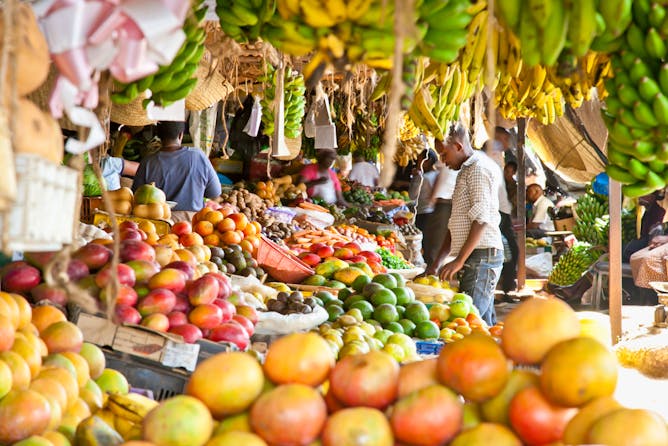
It’s not that people in poorer countries want to eat unhealthily - but cost is a huge factor.
Aleksandar Todorovic/Shutterstock.com/Editorial use only
Derek Headey, CGIAR System Organization; Harold Alderman, CGIAR System Organization
The fact that relative food prices differ so markedly and so systematically provides a very strong rationale for nutrition-focused food policies.
|
Energy + Environment
|
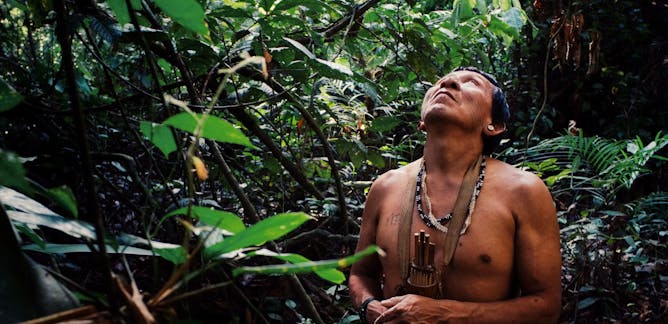
Jayalaxshmi Mistry, Royal Holloway
Fire doesn't have to be destructive. For many in the Amazon, it is part of their livelihood and culture.
| |
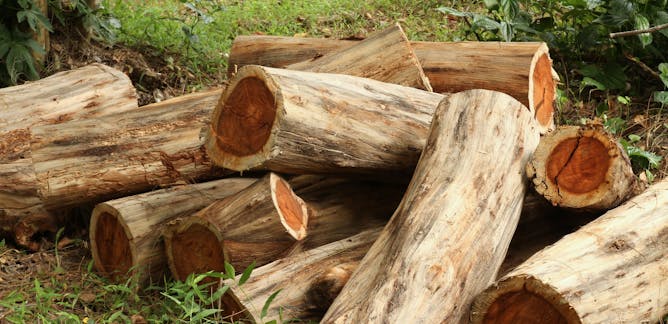
Paolo Omar Cerutti, Centre for International Forestry Research; Nils Bourland, Centre for International Forestry Research
CITES' decision seeks to increase levels of monitoring so that we can be more and better informed about the illegal trade of Mukula and over-harvesting.
|
|
|
Politics + Society
|
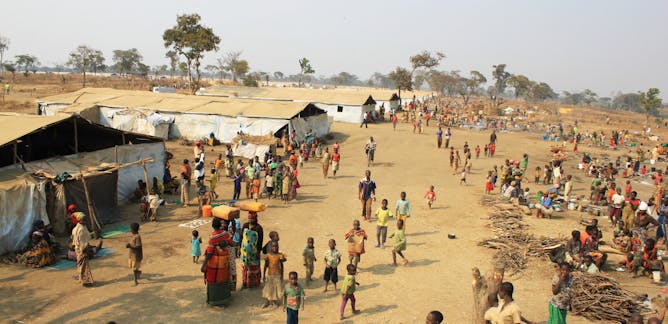
Amelia Kuch, University of Edinburgh
Incidents of violence and growing fear and uncertainty have pushed over 400 000 Burundians to seek refuge in neighbouring countries.
| |

Keith D. Parry, University of Winchester; Emma Kavanagh, Bournemouth University
Ben Stokes has gone from villain to national hero. His story provides hope for us all.
|
|
|
En français
|

Benoît Pelopidas, Sciences Po – USPC; Fabrício M. Fialho, Sciences Po – USPC
La première enquête sur les connaissances et attitudes des Européens eu égard aux questions nucléaires révèle des biais surprenants en France, porteurs d'importantes implications pour la démocratie.
| |
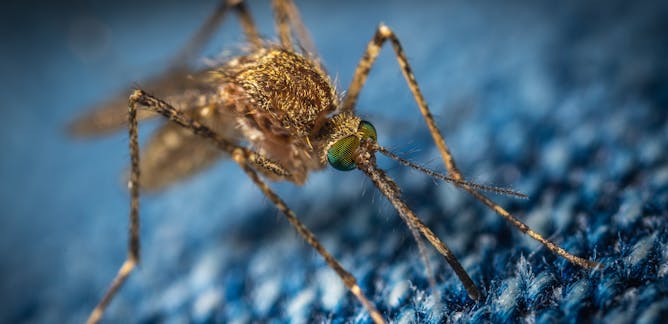
Yannick Simonin, Université de Montpellier
Plusieurs virus sévissant sur d’autres continents ont été identifiés en France métropolitaine. Leurs vecteurs ont en effet pris leurs aises, profitant des changements environnementaux récents.
|
|
|